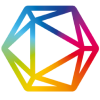Webgames and the four pillars of education
Abstract
The contributions of technology to human development are striking; in the education field, changes in material resources being pointed out as a reference for this development in the educational context. A way of taking possession of these technologies has been seen with a quite prosperous initiative known as webgames. The "Learning: The Treasure Within " report proposes principles for improving the educational process and for a new concept of learning, founded on the four pillars of education: learning to know, to do, to live together, and to be. The objective of this article is to present theoretical reflections of conversation between webgames and the methodology based on the four pillars of education, in the context of social projects. Webgames are playful games, transposed from the environment of digital games, to be experienced with the body. Social projects that focus on education and citizenship, in order to achieve their goals, usually use playful games and sport. Thus, playful games and sport, have the habit of stimulating human movement, through physical activity. We conclude that there is a possibility for physical education professionals who work in social projects to choose to use webgames, to create alternatives to encourage the movement of children.
Downloads
Copyright (c) 2022 Authors

This work is licensed under a Creative Commons Attribution 4.0 International License.
• Authors retain the copyright and full publishing rights without restrictions.

This work is licensed under a Creative Commons Attribution 4.0 International License.












_1502.jpg)











